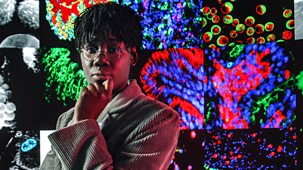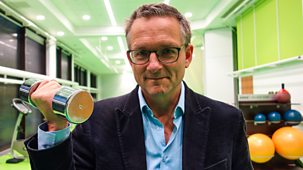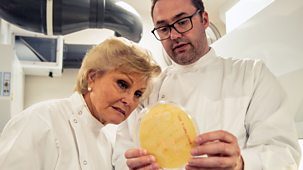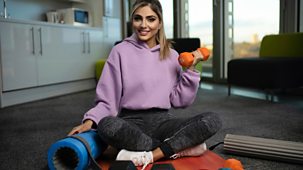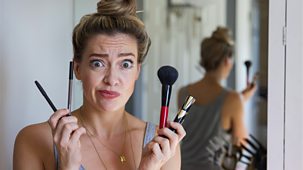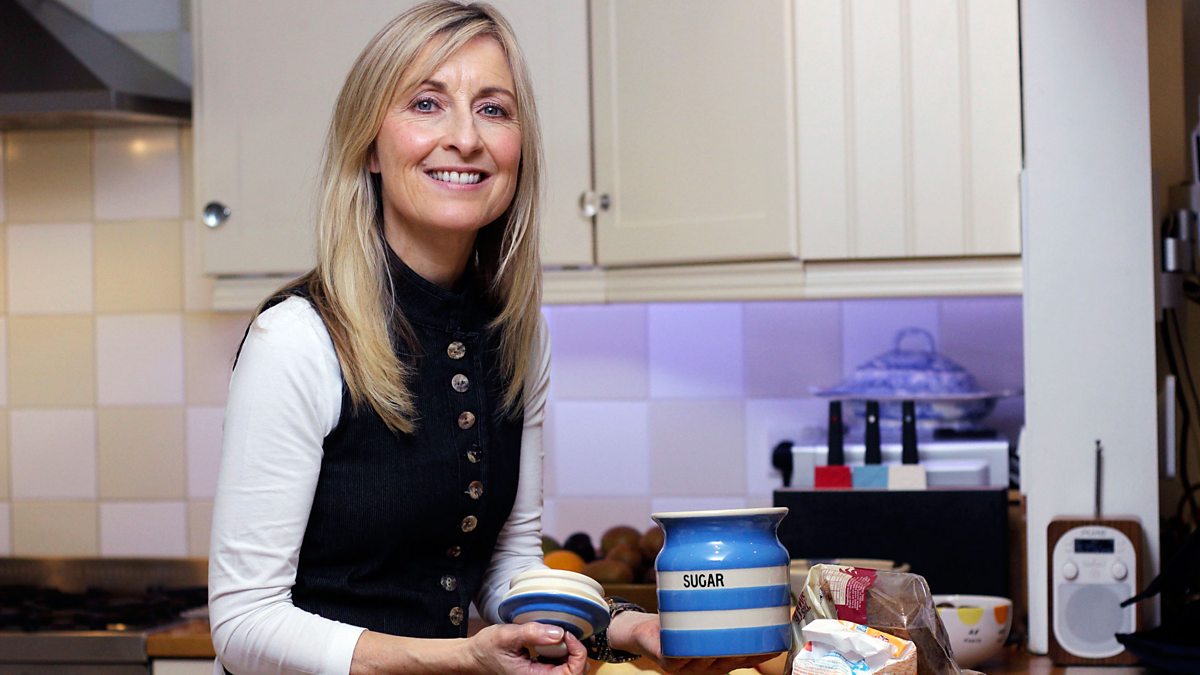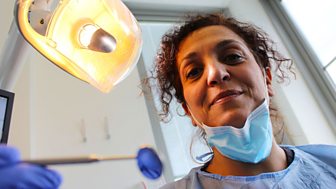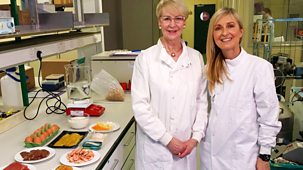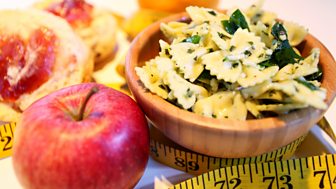
27. Carbs
As a nation, we love eating carbs, and they are right at the heart of our diet. The problem is that with 63 per cent of UK adults now considered overweight or obese, many experts think that we are eating far too many wrong sorts of carbohydrate.\n\nXand van Tulleken is a medical doctor and self-professed lover of carbs, to the point where he used to weigh 19 stone. He is keen to discover whether they really are a killer as claimed by many, responsible for record levels of obesity and type 2 diabetes. The film investigates cutting-edge research into the possible link between carb consumption and infertility in both women and men, and looks into whether genetic changes are taking place as we pass our eating habits on to our children.\n\nXand and a team of volunteers play 'blood sugar bingo' as they attempt to guess how much sugar a selection of common foods each releases into the bloodstream. Xand discovers that looks can be deceiving - a baked potato is the equivalent of a staggering 19 sugar lumps, whereas a large bowl of strawberries is only four. There is also a simple test that anyone can do at home to determine how well they tolerate starchy carbs like rice, pasta and bread. Simply chew a small, unsalted cracker and time how long it takes to change taste in the mouth.\n\nThe film then sets out to examine whether it is still possible to eat carbs, but in a way that is much healthier for us. There is a little-known type of carbohydrate called resistant starch; like fibre, it helps keep bowel cancer at bay. But a medical exam reveals that, like most people in the UK, Xand doesn't eat enough of this carb. So how should he go about eating more carbs like fibre and resistant starch?\n\nThe programme turns the myth about bread on its head, discovering bakes that are good for us. There is even a way of making white bread healthier by sticking it in the freezer before toasting it - this process turns some of the sugary starch into resistant starch. Scientists have discovered that other starchy carbs like pasta, rice and potatoes can be changed in a very simple way to make them better for us, by cooking and cooling - they become less calorific and vital food for our gut bacteria.\n\nThere is a surprise in store for Xand when he heads to the gym with his favourite carb-filled sports drink. He discovers that for exercise lasting less than an hour, there is a very neat trick that fools the brain into thinking that it is going to get carbs, which improves performance. All he has to do is swill the drink and spit it out.\n\nBut perhaps most importantly, the programme teams up with a Merseyside GP to trial a healthy-eating plan. Originally devised to help diabetic and obese patients, this plan doesn't count calories but asks participants to be smart with their carbs - swapping 'sugary' carbs for more fibre. The results after just two weeks come as a surprise to Xand and the trial doctors.
Source: BBC 1
Most recent episodes of The Truth About...
The Truth About...
Improving Your Mental Health
Clinical psychologist Professor Tanya Byron teams up with former England footballer Alex Scott, who has suffered from depression, to discover how the latest science can help us ...
16-05-2023
BBC 1
The Truth About...
Boosting Your Immune System
You can't feel it or see it. You can't take its pulse or its temperature. But out of sight and out of mind, your immune system is working to protect you from infectious bacteria ...
26-08-2021
BBC 1
The Truth About...
25. Getting Fit
By the middle of January many people struggle to keep up their resolutions to be more active. The result is that the UK wastes nearly £600 million a year on unused gym mem ...
25-03-2021
BBC 1
The Truth About...
19. Antibiotics
Wild alligators and a sewage works are just two of the places Angela Rippon discovers that scientists are looking for new ways to fight bacterial infections. Angela reveals how ...
18-03-2021
BBC 1
The Truth About...
13. Sleep
We are one of the most sleep-deprived countries in the world. In The Truth About Sleep, insomniac Michael Mosley finds out what happens if we don't get enough sleep and looks at ...
11-03-2021
BBC 1
The Truth About...
Getting Fit At Home
During months of having to stay at home, millions of us have swapped the gym for our living room. The numbers doing home workouts has doubled in a year. But exactly what kind of ...
29-01-2021
BBC 1
The Truth About...
24. Looking Good
In the UK over £9 billion a year are spent on beauty products that promise to improve and transform us. But how much of what these products promise is based in scientific ...
30-09-2020
BBC 1
The Truth About...
27. Carbs
As a nation, we love eating carbs, and they are right at the heart of our diet. The problem is that with 63 per cent of UK adults now considered overweight or obese, many expert ...
23-09-2020
BBC 1
The Truth About...
26. Obesity
Documentary which looks at the latest scientific research on obesity. A combination of fast food culture and genes have led to our expanding waistlines, but Chris Bavin reveals ...
23-10-2019
BBC 1
Most popular episodes of The Truth About...
The Truth About...
27. Carbs
As a nation, we love eating carbs, and they are right at the heart of our diet. The problem is that with 63 per cent of UK adults now considered overweight or obese, many expert ...
23-09-2020
BBC 1
The Truth About...
Improving Your Mental Health
Clinical psychologist Professor Tanya Byron teams up with former England footballer Alex Scott, who has suffered from depression, to discover how the latest science can help us ...
16-05-2023
BBC 1
The Truth About...
Getting Fit At Home
During months of having to stay at home, millions of us have swapped the gym for our living room. The numbers doing home workouts has doubled in a year. But exactly what kind of ...
29-01-2021
BBC 1
The Truth About...
26. Obesity
Documentary which looks at the latest scientific research on obesity. A combination of fast food culture and genes have led to our expanding waistlines, but Chris Bavin reveals ...
23-10-2019
BBC 1
The Truth About...
25. Getting Fit
By the middle of January many people struggle to keep up their resolutions to be more active. The result is that the UK wastes nearly £600 million a year on unused gym mem ...
25-03-2021
BBC 1
The Truth About...
5. Your Teeth - Part 1
In this two-part event, Britain's top dentists show how the latest science can change how we all look after our teeth.
04-06-2015
BBC 1



